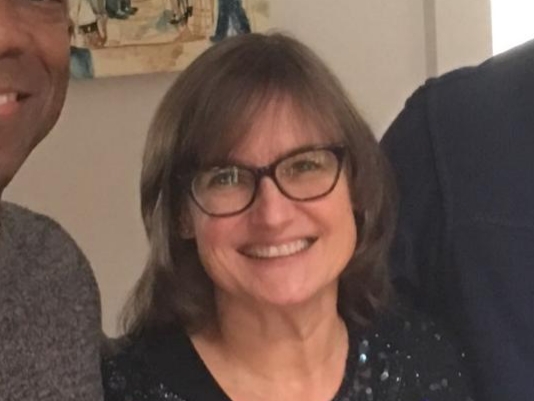Professor
About
Office Hours
Fall 2024: Mondays 4-4:50, Wednesdays 4-5:15, or by appointment. Please email me to make an appointment.Role
FacultyPosition
- Professor
Concentration
- Literature
Department
- English
Education
- Ph.D. English with distinction University of Illinois
Biography
Professor. B.A., English, with honors, University of Chicago; M.A., English, Ph.D., English, with distinction, University of Illinois.
Professor Sebek specializes in early modern British literature. Most recent publication: "Interrogating Genre: Domestic Tragedy, Closet Drama, and the case of Elizabeth Cary's The Tragedy of Mariam, Fair Queen of Jewry,” special issue of Studies in the Literary Imagination on “Death and Domesticity." The Routledge Handbook of Shakespeare and Global Appropriation (2019) includes her essay on Frank McGuinness's appropriations of Spenser and Shakespeare, "Edmund Hosts William: Appropriation, Polytemporality, and Postcoloniality in Frank McGuinness’s Mutabilitie.” Early Modern Culture (Volume 12: 2017) includes her contribution to an essay cluster on Close Reading edited by Phyllis Rackin and Peter Parolin. Other recent publications include an essay on teaching from a global perspective in Approaches to Teaching Shakespeare’s History Plays (MLA 2017), edited by Laurie Ellinghausen. An essay pushing back against the common view of Shakespeare’s Merry Wives of Windsor as the “most English comedy” appears in the collection Culinary Shakespeare (Duquesne 2016), edited by David Goldstein and Amy Tigner. Interests in the economic contexts of renaissance plays and England’s expanding global networks inform her essays in Brinda Charry and Gitanjali Shahani’s Emissaries in Early Modern Literature (2009), Jyotsna Singh’s Companion to the Global Renaissance (2009), Global Traffic: Discourses and Practices of Trade in Early Modern Literature and Culture from 1550 to 1700 (2008)—a collection that she coedited with Stephen Deng of Michigan State University—and a contribution to Jean Howard’s forum on “English Cosmopolitanism” in Shakespeare Studies (2007). Earlier essays and reviews appear in The Tempest: Critical Essays, Playing the Globe: Genre and Geography in Renaissance Drama, Journal X, Shakespeare Quarterly, Theatre Research International, Sixteenth Century Studies, and Early Modern Culture: An Electronic Seminar.
Publications
My most recent publication, "Interrogating Genre: Domestic Tragedy, Closet Drama, and the case of Elizabeth Cary's The Tragedy of Mariam, Fair Queen of Jewry,” appears in the special issue on “Death and Domesticity: Reassessing Domestic Dramas of the Renaissance,” Brent Griffin, ed. Studies in the Literary Imagination, Volume 54 (2021): 97-110.
Other essays include:
“Edmund Hosts William: Appropriation, Polytemporality, and Postcoloniality in Frank McGuinness’s Mutabilitie” The Routledge Handbook of Shakespeare and Global Appropriation, Christy Desmet, Miriam Jacobsen, and Sujata Iyengar, eds. Routledge (2019): 79-89.
“Canary, Bristoles, Londres, Ingleses: English Traders in the Canaries in the Sixteenth and Seventeenth Centuries,” in A Companion to the Global Renaissance, Jyotsna Singh, ed. Blackwell (2009): 279-93. Reissued in paperback, 2013. Revised and expanded version for expanded second edition (2021): 319-331.
"Quickly, Archy, and the Citizens' Wives; or, How to Talk to an Elephant" appears in the journal Early Modern Culture (Volume 12: 2017), part of an essay cluster on close reading edited by Phyllis Rackin and Peter Parolin. https://tigerprints.clemson.edu/emc/vol12/iss1/4
Courses
-
E 456 Topics in Critical Theory: Historicisms
This course explores a few central questions: How have different literary critics and cultural historians understood the relationship between past and present and between literary texts and historical contexts? What kinds of sources and materials do historicist critics draw on in analyzing literary texts and other cultural phenomena? Why is historicist criticism not necessarily “about” the past? Readings and assignments will invite you to refine your research skills and expand your critical “toolbox” for offering more nuanced contextualization of literary and cultural texts. In the first third of the course, we will read a few critical overviews of historicist criticism. We will then read one play by Shakespeare and one novel by Virginia Woolf as “case studies” in the practice of historicist criticism.
-
E 428 Colonial and Postcolonial Literature
Beginning in the sixteenth century, England ruled over and defined itself in relation to a set of colonies in diverse geographical regions.
This course introduces students to a variety of texts that dramatize the global reach of English literature and culture and explore the links between colonialist texts and those texts that write against colonial/imperial culture. We will take a long historical view in this course, beginning in the period of discovery and expansion when colonial formations were emergent, with readings by Edmund Spenser and William Shakespeare. We will extend our long view to twentieth-century works that engage creatively and critically with the legacy of colonialism: novels by Tayeb Salih and Virginia Woolf, and a play by Frank McGuinness. Drawing on Ania Loomba’s guide to colonial and postcolonial studies, we explore how literature participates in the ideological work of telling stories that legitimate, resist, or otherwise reconfigure efforts to assert political, economic and cultural dominion over subjugated peoples and cultures.
